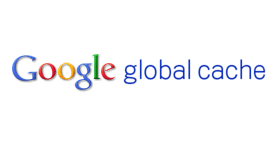What happens if Google Global Cache is banned - in simple language

Today there was news that
The consequences will be disastrous. For all.
What is Google Global Cache - hereinafter GGC?
Every time you watch a video on Youtube, you receive data from the servers where it is stored, but it can be stored:
- On the original servers - overseas
- On the local servers of your provider - across the street from you
In the first case, the provider will pay for traffic on the highway, and in the second - no, it is free for it.
')
Do not forget that the channels within the provider network (between cities, streets, houses) will be wider than the channels to the outside.
How GGC works
Caching can work in two versions:
- If you frequently access the content (suppose a video on YouTube), after the 10th, for example, it will hit the caches, thus the 11th and subsequent calls will be processed by the cache.
- Preventive, all TOP will be uploaded to the server regardless of the number of hits.
What (what services) does GGC serve?
It serves any static files, or to be more precise:
- Cards
- Android apps update
- Chrome update
- Image Search
- Youtube
At the last, I would like to stop in more detail, because it seems he is the source of future locks.
Youtube content is divided into several types:
- Video
- Pictures (preview)
- Streaming
It's time to remember that now video content is switching to 4K or 1080 @ 60 frames per second.
Even on the basis of these data, you can roughly imagine the volume of traffic that Youtube digests. For example, the “Game of Thrones” series in 1080p “weighs” about 1.2 GB, and this is not 60 frames yet; at 60 we multiply by 2.
What happens when you turn off GGC
For the user
- Slow video upload to Youtube;
- The inability to view videos in high quality due to the limitation of the channel (many providers make Youtube traffic local and it is available at local speed);
- Slowing all services that run through GGC;
- Slow response of the application: now you clicked on the video, and now you are already watching it; but then forget - while your request reaches the US, some time will pass which you will wait each time clicking on the video;
- Price increase for home and mobile Internet .
For the operator
So, you are an operator, you have a lot of users who love video content. Now about 40% of the traffic is video, and as you can guess, 90% is Youtube. When you have a GGC - you pay for about 10% of the traffic to Google services, the rest of the traffic is processed in your data center, without leaving your network.
If you are an operator who works in several cities, you most likely have a GGC server in each city, which allows you not to even let traffic out of the city, saving money on the main line.
Now you will pay for all this traffic.
Forecast
Suppose we have a home Internet user. In a month it consumed about 200GB of data, of which 90 GB is traffic, for which your operator does not pay yet. And what will happen when he starts paying for him?
True, the first nail in the coffin of unlimited tariffs was the law on the storage of all subscriber traffic, and the last one was to disable Google caching servers. Yes, yes, soon all unlimited tariffs will end and the price will be set at a level with mobile Internet.
But the consequences will be much more catastrophic for the operator, people will refuse from the home Internet. Why does he need them if he is the same as on a mobile? It's time to remember how many people work in telecom operators, how many people get paid for what they are:
- Connect subscribers
- Conduct channels home
- Answer calls in the call centers
And many other posts. All of them will not be needed, they will be fired.
Perhaps you say that telecom operators will be happy, no.
They also save money, yes, they will have revenue growth, but it only compensates for the loss due to the ban.
In the end, what we have at the ban:
- The deterioration of the speed of access to services
- Growth cent on communication services
- End of unlimited tariffs
- Rising unemployment
[ Source ]
Source: https://habr.com/ru/post/358054/
All Articles